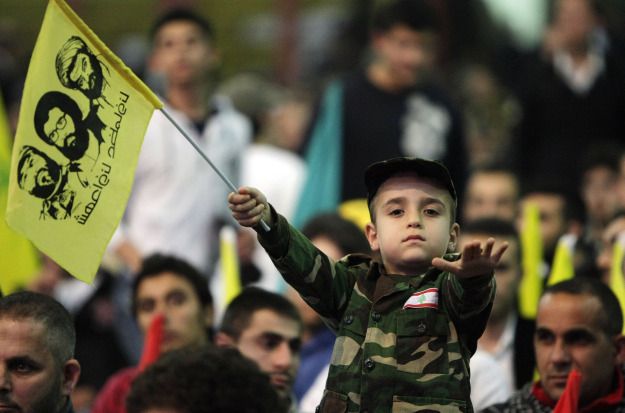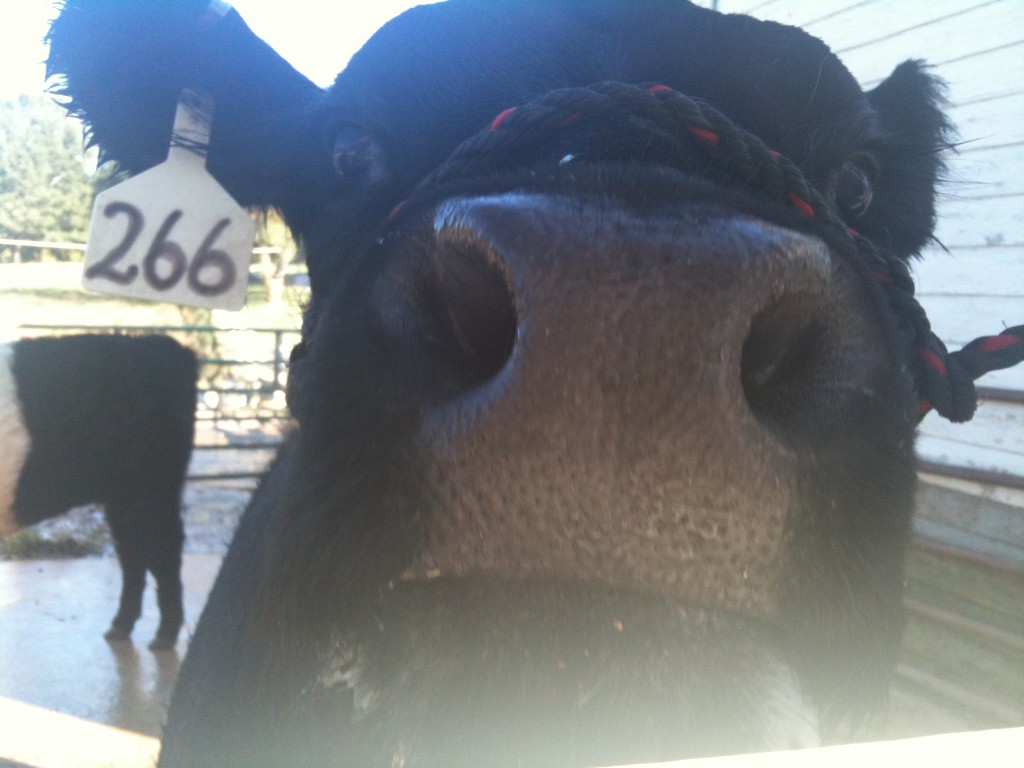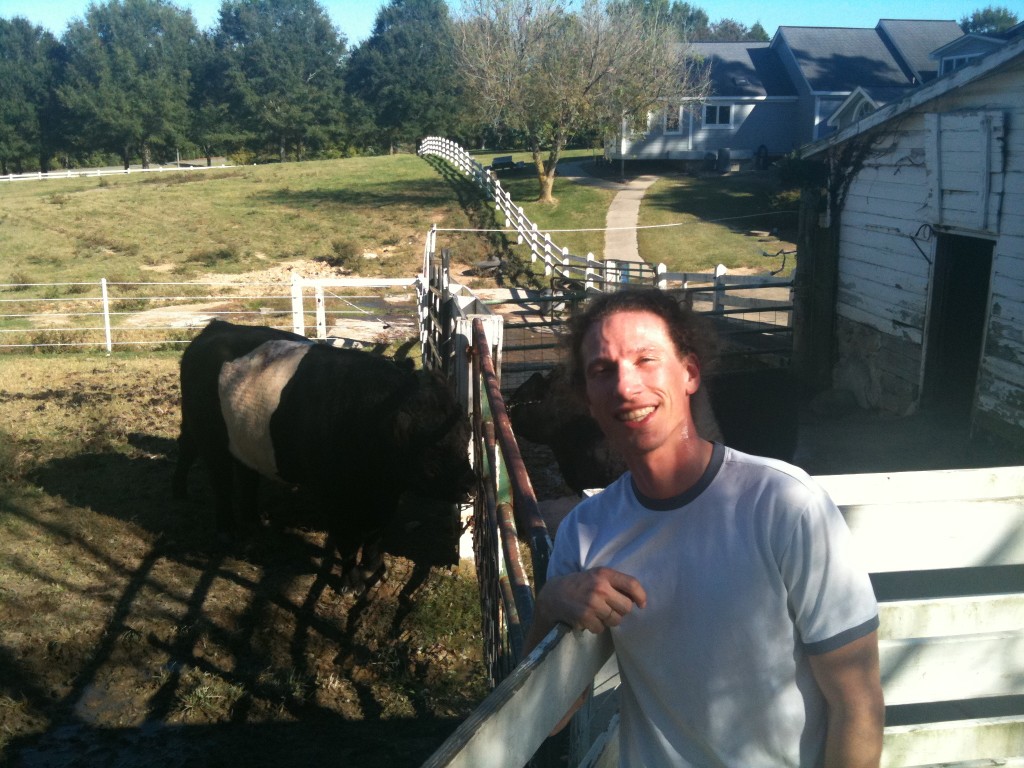Ian Masters Show
Ian had me on his show on Wednesday to discuss the Special Tribunal for Lebanon indictments. He’s particularly interested in the possibility for a regional war now, provoked by an Israeli attack on Iran, or by the Assad regime and Hezbollah because of the domestic threats they face. My view is that Hezbollah would be unlikely to start a war with Israel on behalf of one of its foreign sponsors – Syria or Iran – but it might fear the collapse of the Assad regime could threaten Hezbollah’s military viability. I also believe the Tribunal indictments don’t pose a serious challenge to Hezbollah anymore. (I’ve written an extended version of this argument which should be published soon in The National Interest.)
You can listen to the Ian Masters show here.
PTD on Book TV
C-SPAN’s Book TV is airing a talk I gave at the New York Public Library in February about the historical trajectory of Hezbollah in the context of the rising tide of Arab revolutions. As change-fever spreads across the Arab world, we’ll begin to see answers emerging to the fundamental questions I explore here: What shape will revolutionary politics take as they’re institutionalized in a newly dynamic Arab political space? How will Hezbollah’s rejectionist “Resistance Axis” fare once it has to compete in the marketplace of ideas with a real alternative?
Hezbollah and the Tribunal
A few weeks ago, when Lebanon was still big news, I gave a talk at the International Peace Institute in New York. They have posted a podcast and transcript of the remarks, moderated by Warren Hoge and punctuated witha very lively question-and-answer question, with some smart pushback from audience members who thought I overstate Hezbollah’s ideological motives and understate the extent of the party’s Lebanonization.
Lebanon talk on WBUR
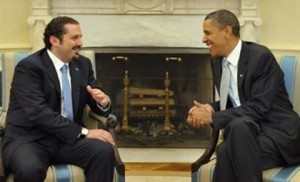 Robin Young had me on her show Thursday to discuss my oped in The New York Times. At the end she asked me what would change if the United States changed its policy and started engaging Hezbollah. In this case, I guessed, nothing; dialogue might give the U.S. more information that it currently has, and more insight into Hezbollah than it currently possesses, but little else.
Robin Young had me on her show Thursday to discuss my oped in The New York Times. At the end she asked me what would change if the United States changed its policy and started engaging Hezbollah. In this case, I guessed, nothing; dialogue might give the U.S. more information that it currently has, and more insight into Hezbollah than it currently possesses, but little else.
Click here for our conversation.
Haaretz reviews APTD
The esteemed weekend Haaretz has reviewed A Privilege to Die, recommending the book to Westerners, and in particular Israelis, because it contains insights into Hezbollah that might well make readers uncomfortable. (Disclosure: the reviewer, mystery writer Matt Beynon Rees, is a friend.) He compares my book to David Hirst’s Beware of Small States.
The essence of the Shi’ite organization’s success, as Cambanis sees it, is its ability to carve out clear answers to Lebanon’s vital national questions. That gives it a big advantage over the cloudy mass of Lebanon’s other vicious sectarian parties. One voter tells Cambanis that his choice of Hezbollah was based on the fact that he was “sick of all these other assholes.”
Read the rest of the review here.
http://www.haaretz.com/culture/books/middle-east-into-the-heart-of-hezbollah-1.336038
Foreign Affairs Review
A brief mention of A Privilege to Die in the latest issue of Foreign Affairs:
Cambanis’ intimate account of this recent history, enhanced by stories of a handful of Hezbollah’s true believers and sympathizers, paints a gripping portrait of this radical religio-political movement.
WBUR’s Here & Now
Robin Young brought me into the studio on Tuesday to talk about my column in The Boston Globe about “engagement hawks,” the pragmatists who argue that America needs a more coherent strategy to deal with terrorist-designated groups and other enemies.
WNYC’s Leonard Lopate
Today Leonard Lopate had me on his show, for a gracious, informed and detailed interview about Hezbollah, the current state of the Middle East, and A Privilege to Die. Lopate knows the subject well, and he pushed hard on Hezbollah’s relationship to Lebanon’s unique context. Audiences at book talks are often interested in questions like “What do they want from Israel?” or “Do they want to establish an Islamic state?” Much tougher to answer are the specific, granular questions: How does Hezbollah woo supporters, how does it exercise power, what will it do when its monopoly of force is challenged?
You can listen to the segment from The Leonard Lopate show here on the WNYC site.
On Australian Radio
Listeners in Sydney, Australia today got to hear Mark Colvin’s of ABC’s PM program talk with me about Hezbollah’s likely reaction to indictments of its members in the Hariri assassination. You can, too, on their webcast, available here.
Faith Middleton Show
Faith Middleton discussed Hezbollah with me on her show on Monday, broadcast on WNPR in Connecticut. You can listen to our conversation here.
Hitchens on Hezbollah
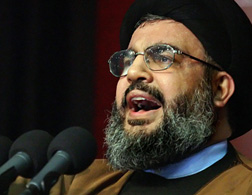 Christopher Hitchens on Slate laments Hezbollah’s renaissance in Lebanon. He blames two main factors: Israel’s “crass intervention in Lebanon in 2006,” and the United States unwilligness to take an interest in Lebanon. To his list I’d add a few other reasons: the absence of a coherent and compelling alternative to the “Axis of Resistance”; massive corruption and/or incompetence among so-called moderates; and the puzzling failure of non-militant movements to use religion to mobilize mass support.
Christopher Hitchens on Slate laments Hezbollah’s renaissance in Lebanon. He blames two main factors: Israel’s “crass intervention in Lebanon in 2006,” and the United States unwilligness to take an interest in Lebanon. To his list I’d add a few other reasons: the absence of a coherent and compelling alternative to the “Axis of Resistance”; massive corruption and/or incompetence among so-called moderates; and the puzzling failure of non-militant movements to use religion to mobilize mass support.
Very kindly, Hitchens also mentions A Privilege to Die:
A depressingly excellent book on the contours of that new reality is provided by Thanassis Cambanis. A Privilege To Die lays out the near-brilliant way in which Hezbollah manages to be both the party of the downtrodden and the puppet of two of the area’s most retrograde dictatorships. Visiting Beirut not long after Hezbollah had been exposed as an accomplice to Syria and as the party that had brought Israel’s devastating reprisals upon the innocent, I was impressed, despite myself, by the discipline and enthusiasm of one of Nasrallah’s rallies in the south of the city. Cambanis shows how the trick is pulled. With what you might call its “soft” power, the Party of God rebuilds the shattered slums, provides welfare and education, and recruits the children into its version of a Boy Scout movement, this time dedicated to martyrdom and revenge. With its “hard” power, it provides constant reminders of what can happen to anyone who looks askance at its achievements. Its savvy use of media provides a continual menu of thrilling racial and religious hatred against the Jews. And its front-line status on Israel’s northern frontier allows it to insult all “moderate” regimes as poltroons and castrati unwilling to sacrifice to restore Arab and Muslim honor. Many Sunni Arabs hate and detest Hezbollah, but none fail to fear and thus to respect it, which Nasrallah correctly regards as the main thing.
On “The World”
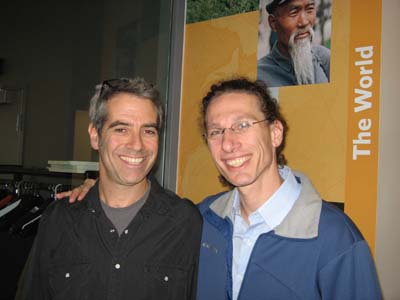 One of my favorite radio programs, The World (from WGBH, the BBC and PRI), had me on last Friday to talk about why people join Hezbollah and what the Party of God means to its million-plus followers. Marco Werman asked great questions, leading to a discussion of people in Hezbollah, and focusing again on Faris Jamil, who left Manhattan because of all the crime and drugs.
One of my favorite radio programs, The World (from WGBH, the BBC and PRI), had me on last Friday to talk about why people join Hezbollah and what the Party of God means to its million-plus followers. Marco Werman asked great questions, leading to a discussion of people in Hezbollah, and focusing again on Faris Jamil, who left Manhattan because of all the crime and drugs.
“I couldn’t raise my kids there!” Faris Jamil told me. Instead he moved to Aita al Shaab in south Lebanon, about a mile from Israeli border. Certain war seemed a small price to pay to raise his children in the cradle of the Islamic Resistance.
From an American perspective, it might not make sense why a successful businessman like Faris would prefer the cycles of destruction in southern Lebanon to the prosperity of New York. A big part of the explanation is also goes a long way toward explaining Hezbollah’s appeal: personal identity.
Hezbollah’s Boy Scouts
Where can you learn how to brush your teeth well, tie a knot, articulately recite a Hassan Nasrallah speech, and if you’re lucky, how to join the war against Israel? The answer is the Mahdi Scouts, Hezbollah’s contribution to the international scouting movement. Drawing liberally on Western scout movements as well as the Iranian revolution, Hezbollah has put together a dynamic movement that effectively instills its ideology and tactics in the very young. The Mahdi Scouts showcase Hezbollah’s dual approach — building community through religion and at the same time, mobilizing their devotees through an appeal to fight a unifying enemy.
This extract from A Privilege to Die published today in Foreign Policy describes the day I spent with a Mahdi Scout troop in Khiam.
Mohammed Dawi, the sweaty and plump scout leader, met us at the entrance to Khiam town. He was a redhead with freckles, and looked more Irish than Lebanese. The younger scouts were waiting in the basement of a high school a mile or so from the prison. The troop leader led them in a chant of welcome. Most of them wore blue shirts with epaulets, white scarves, and oversized badges featuring a photograph of a scowling Ayatollah Khomeini. Two boys who looked about ten wore full military fatigues.
It seemed the day’s activities had been planned with my visit in mind. The children marched downstairs single file and broke up by age group. The “buds,” six or seven years old, assembled for a puppet show, emceed by a man in a worn panda suit who sang lines from Nasrallah’s speeches. The “sprouts,” eight to ten years old, sat around tables at the rear of the room drawing pictures, their ideas inspired by a chubby and soft-spoken young woman named Malak Sweid. She was a graphic design student and zealous party apparatchik.
In “guided drawing,” the kids drew pictures of Israelis weeping in defeat, denoted by Stars of David on their helmets, or of Israelis stepping on Lebanese. Other children, with evident direction by Malak, depicted crosses and crescents, symbolizing the Lebanese Christians and Muslims, chained by vicious Stars of David. Other pictures spoke less to the conflict with the Jews than to Islamic values. One child’s picture showed women in low-cut gowns holding martini glasses and cigarettes in old-fashioned holders. “Smoking Harms Your Health” was the title.
The Best Audience
Last weekend I gave a talk at McIntyre’s Fine Books in Fearrington Village, near my hometown of Chapel Hill. Fearrington Village is known locally for its Belties, a characteristic species of striped cow. They made a fine audience when I described my encounters with Hezbollah. Later, after I ate shrimp and grits then took a meandering run through Fearrington’s retirement condos, the Belties were still there waiting, patient and bovine, by the bookshop. Very affirming, serene creatures.
Privilege to Die in Boston this weekend
My first appearance in Boston is coming up this Saturday as part of the Boston Book Fair. Noah Feldman from Harvard Law is moderating a panel called “Global Hot Spot: the Middle East’ featuring Nir Rosen, Haleh Esfandiari, and me.
I hope to see all my Boston-area friends at noon on Saturday at the Trinity Church Forum, 206 Clarendon Street, Boston.
The Human Face of Hezbollah
![]() David Shribman reviewed A Privilege to Die in today’s Boston Globe. It’s an honor to be reviewed by such a heavyweight (David won a Pulitzer for his Washington reporting at the Globe, and now edits the Pittsburgh Post-Gazette; I don’t know him personally.)
David Shribman reviewed A Privilege to Die in today’s Boston Globe. It’s an honor to be reviewed by such a heavyweight (David won a Pulitzer for his Washington reporting at the Globe, and now edits the Pittsburgh Post-Gazette; I don’t know him personally.)
From the review:
Where some writers talk about the Arab streets, Cambanis has walked them. Along the way he encountered warriors and hospital workers, polished intellectuals and women who sell nuts by the curb, ideologues and theologians, those who engage in small acts of resistance and those who prosecute total war of the most brutal sort. …
What becomes clear is that the key to Hezbollah is its ability to spread virtue along with the violence. It promises, for example, to restore communities — homes and businesses — to their original conditions after each episode of conflict. “Hezbollah needed to keep [its] soft supporters happy,’’ Cambanis writes, “and to do so it needed to deliver bricks and mortar along with its ideology.’’
On The State of Things
As I’d hoped, my mother thought my talks in Chapel Hill and Fearrington Village were excellent. She found me very articulate. There were some other, perhaps more unexpected, surprises on the homecoming leg of my book tour. My sixth-grade teacher, Mr. Greenlund, led an intimidating phalanx of educators from my past (among them Ms. Brooks; Mr. Baldwin; Profs. Kramer, Gingher, and Betts).
And I got to go on what for me is the original public radio station: WUNC. You can hear the segment with The State of Things host Frank Stasio here. (Thanks, Amber!) North Carolina provided the perfect venue to explore the remarkable tactical parallels between Hezbollah’s approach to social organization and the rise of evangelical mega-churches. I don’t mean to stretch the comparison too far, but my encounters with evangelical movements in North Carolina showed me an early, effective model that paired social activities with religious educations, proselytizing with community service, and faith with political activism.
The Way Hezbollah Lives Now
 CBC Radio’s Dispatches program did a nice long interview with me earlier this week, focusing on the nuts-and-bolts of Hezbollah’s approach to individual constituents. We talked at length about Faris Jamil, the Hezbollah supporter who once worked in Manhattan for a Jewish fabric merchant but decided to move his children to Aita al Shaab and raise them in the Islamic resistance.
CBC Radio’s Dispatches program did a nice long interview with me earlier this week, focusing on the nuts-and-bolts of Hezbollah’s approach to individual constituents. We talked at length about Faris Jamil, the Hezbollah supporter who once worked in Manhattan for a Jewish fabric merchant but decided to move his children to Aita al Shaab and raise them in the Islamic resistance.
You can listen to the conversation with Rick MacInnes-Rae on this link. Scroll down to the segment entitled “The gospel according to Hezbollah.”
